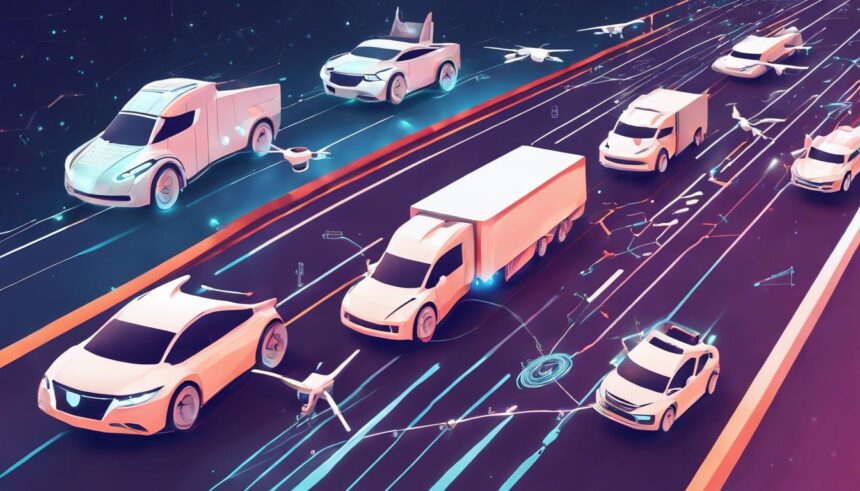A new report by Info-Tech Research Group unveils the transformative potential of artificial intelligence in enhancing operational efficiencies and decision-making in the fleet management industry, amidst digital and logistical challenges.
The realm of fleet management is on the brink of a significant transformation, facilitated by advancements in artificial intelligence (AI), as demonstrated in a new report by Info-Tech Research Group. This pivotal research uncovers the potential of AI to redefine operational efficiencies, resource optimization, and decision-making processes in the fleet management industry. The report arrives at a time when the industry faces numerous challenges including rising operational costs, stringent safety regulations, and an urgent need for digital transformation.
Fleet management, historically reliant on conventional methodologies, is gradually being outpaced by the demands of a rapidly digitizing global market. The integration of AI into this sector represents not just an evolutionary step but a necessary revolution in handling the increasing complications of modern fleet operations. Info-Tech Research Group’s latest publication, “Practical Use Cases for AI in Fleet Management,” presents a guide to leveraging AI, aiming to assist fleet managers in navigating through the industry’s digital evolution.
A crucial insight shared by Kevin Tucker, principal research director at Info-Tech Research Group, highlights the growing indispensability of AI in fleet management. Tucker points out the overwhelming volume of data generated by technological advancements, which surpasses human capacity for timely analysis. This scenario underscores the significance of AI in managing and interpreting extensive datasets, thereby enabling scalable transportation solutions and infrastructure.
The research emphasizes the complexity of implementing AI in fleet management, notably within systems burdened by legacy equipment and unsupported frameworks. However, it argues against complacency with outdated tools, advocating for a strategic embrace of AI to surmount operational and technical obstacles. This entails crafting detailed business cases that outline the long-term benefits and potential improvements AI can introduce to fleet management processes.
Machine learning, a subset of AI, is particularly lauded for its role in analyzing vast data sets generated by telematics systems. Its capabilities in data-driven pattern recognition and providing actionable recommendations represent a sea change from traditional methods like business intelligence. The evolution of these systems towards offering prescriptive instructions could significantly impact decision-making processes in fleet operations.
The research identifies five critical factors for IT leaders to consider in their AI deployment strategies. These encompass a spectrum of considerations from policy and ethics to mitigating risks associated with AI-generated misinformation. A crucial part of implementing AI in fleet management involves identifying use cases that directly benefit operations and foster partnerships with industry peers, tech companies, and experts.
AI’s integration into fleet management goes beyond optimizing operations; it can also enhance product quality, ensure timely deliveries, and support flexible work models through remote monitoring capabilities. This not only helps in maintaining operational efficiency but also promotes employee wellbeing by offering a balance between personal and professional commitments.
Info-Tech Research Group’s commitment to unlocking AI’s potential in fleet management is evidenced by its extensive research and advisory services. The company, a leader in the IT research and advisory space, continues to provide valuable insights and tools to IT leaders, assisting in strategic decision-making and driving tangible results for organizations worldwide.
This study on “Practical Use Cases for AI in Fleet Management” is an essential resource for industry leaders seeking to navigate the complexities of digital transformation in fleet management. It serves as a blueprint for harnessing the power of AI to not just confront current challenges but to also seize new opportunities for efficiency, sustainability, and competitive edge in an ever-evolving marketplace.





